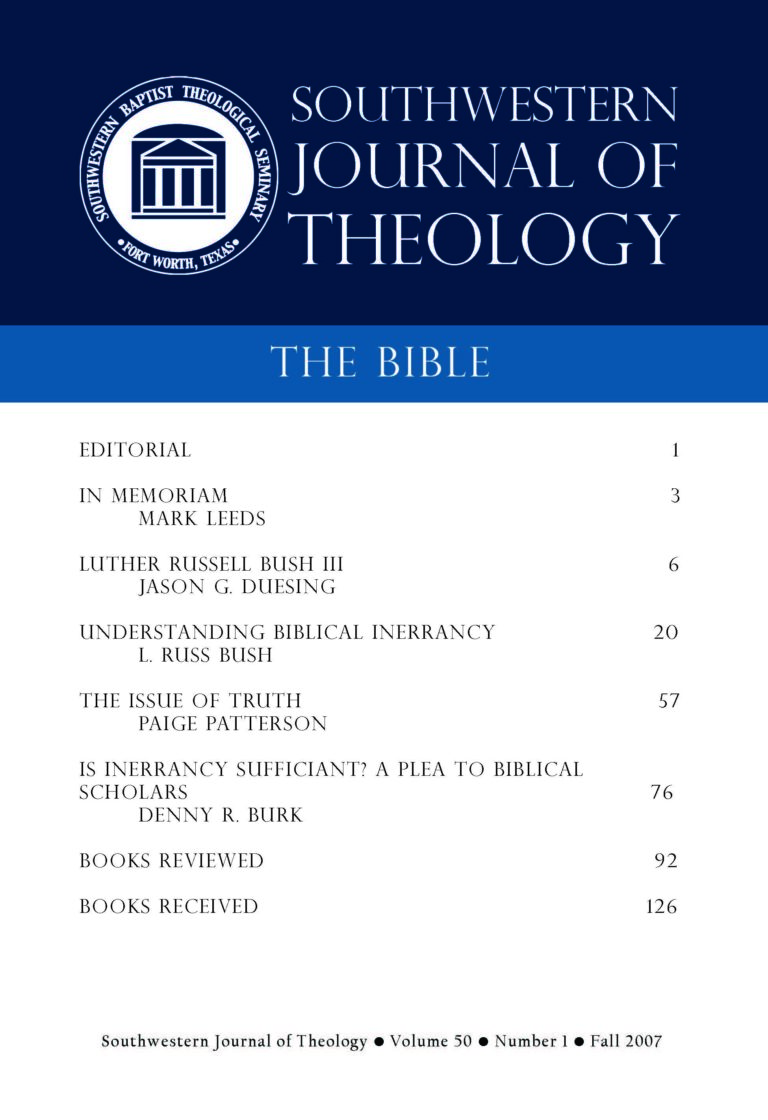
The Bible
Southwestern Journal of Theology
Volume 50, No. 1 – Fall 2007
Managing Editor: Malcolm B. Yarnell III
Revised and Expanded. Edited by Tony Lane. Grand Rapids: Baker, 2006. 336 pages. Softcover, $19.99.
Tony Lane, professor of historical theology and director of research at the London School of Theology, has produced a comprehensive overview spanning Christian thought, beginning with the background of the earliest church fathers and progressing through the twentieth century. This work builds upon and is an expansion of an earlier work by Lane under a different title. The work that Lane has done shows his commitment to studying the past “in order to understand the present” and “in order to escape the present” (1).
The book is structured to move throughout the history of the church by discussing the primary players, movements, and events that have affected Christian thought. Lane does a commendable job of connecting the dots between these players, movements, and events. The result for the reader is more of an overall progression of Christian thought, instead of disconnected snapshot portraits of persons and events. This interplay be- tween the actors and the stage is seen throughout the work as Lane has placed asterisks in the text by those names or events that have their own article in the book. The first section of the book covers the church of the fathers until 500. Parts two and three of the book cover the Eastern tradition from 500 and the Mediaeval West from 500, respectively. Part four of the book covers the period of the Reformation, which Lane places between 1500 and 1800, and the final section covers Christian thought from the year 1800 to the present.
Several strengths of Lane’s work should be commended. First of all, his inclusions are numerous and varied. There are well over one hundred articles that cover persons in addition to the numerous articles on councils, confessions, and movements. Lane does well to introduce his subjects by letting them speak for themselves, as he includes primary selections and references throughout the work. All works written originally in a language other than English are referenced using their English title along with the original classical reference and date of the work. Another strength of the book is the depth to which Lane covers the subjects. The interconnected nature of the presentation points to Lane’s extensive research. Lane shows that concise does not have to mean shallow and rudimentary.
One recommendation that this reviewer has regarding Lane’s work is the addition of an index. While the asterisks are helpful in indicating those subjects that have their own article, there is not an index showing on what pages each subject appears. An index would only add to the interconnected nature of Lane’s work. The book is overall a good introduction to Christian thought through the centuries. It would be a good inclusion as a required text in an introductory church history course. The beginning student will be challenged by the breadth of information but will get a picture of the themes which have affected the church’s history. This work can surely be the foundation to spur students to more specific studies on those themes that are introduced. The book also has value as a quick reference guide for the student or layperson, since he can go directly to the article on the particular subject in which he is interested. Tony Lane’s A Concise History of Christian Thought is to be commended and would be a good addition to the library of student, pastor, and layperson alike.





